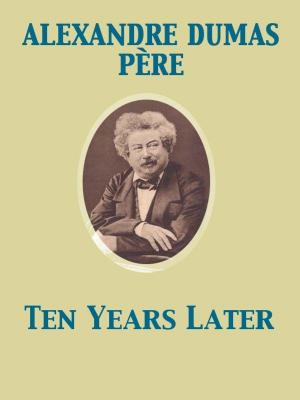| Author: | William Dean Howells | ISBN: | 9782819947998 |
| Publisher: | Release Date: November 27, 2011 | Publication: | November 27, 2011 |
| Imprint: | pubOne.info | Language: | English |
| Author: | William Dean Howells |
| ISBN: | 9782819947998 |
| Publisher: | Release Date: November 27, 2011 |
| Publication: | November 27, 2011 |
| Imprint: | pubOne.info |
| Language: | English |
The question of a final criterion for the appreciation of art is one that perpetually recurs to those interested in any sort of aesthetic endeavor. Mr. John Addington Symonds, in a chapter of 'The Renaissance in Italy' treating of the Bolognese school of painting, which once had so great cry, and was vaunted the supreme exemplar of the grand style, but which he now believes fallen into lasting contempt for its emptiness and soullessness, seeks to determine whether there can be an enduring criterion or not; and his conclusion is applicable to literature as to the other arts. “Our hope, ” he says, “with regard to the unity of taste in the future then is, that all sentimental or academical seekings after the ideal having been abandoned, momentary theories founded upon idiosyncratic or temporary partialities exploded, and nothing accepted but what is solid and positive, the scientific spirit shall make men progressively more and more conscious of these 'bleibende Verhaltnisse, ' more and more capable of living in the whole; also, that in proportion as we gain a firmer hold upon our own place in the world, we shall come to comprehend with more instinctive certitude what is simple, natural, and honest, welcoming with gladness all artistic products that exhibit these qualities
The question of a final criterion for the appreciation of art is one that perpetually recurs to those interested in any sort of aesthetic endeavor. Mr. John Addington Symonds, in a chapter of 'The Renaissance in Italy' treating of the Bolognese school of painting, which once had so great cry, and was vaunted the supreme exemplar of the grand style, but which he now believes fallen into lasting contempt for its emptiness and soullessness, seeks to determine whether there can be an enduring criterion or not; and his conclusion is applicable to literature as to the other arts. “Our hope, ” he says, “with regard to the unity of taste in the future then is, that all sentimental or academical seekings after the ideal having been abandoned, momentary theories founded upon idiosyncratic or temporary partialities exploded, and nothing accepted but what is solid and positive, the scientific spirit shall make men progressively more and more conscious of these 'bleibende Verhaltnisse, ' more and more capable of living in the whole; also, that in proportion as we gain a firmer hold upon our own place in the world, we shall come to comprehend with more instinctive certitude what is simple, natural, and honest, welcoming with gladness all artistic products that exhibit these qualities















